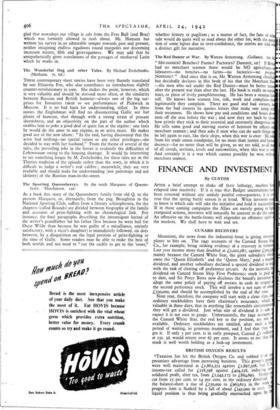The Wonderful Dog and other Tales. By Michael Zoshchenko. (Methuen.
78. 6d.) THESE contemporary short stories have been very fluently translated by one Elisaveta Fen, who also contributes an introduction slightly counter-revolutionary in tone. She makes the point, however, which is very valuable and should be stressed more often, of the similarity between Russian and British humour—always one of the big sur- prises for Intourists taken to see performances of Pickwick in Moscow. It is no bad basis for understanding, either In these stories the Englishman will find no disconcerting Gallic wit but plenty of humour, shot through with a strong strain of peasant shrewdness, and an objectivity on the part of the author which enables him to poke a good deal of quiet fun at the regime: one feels he would do the same to any regime, as an artist must. He makes good use of the new idiom: " In the end, having discovered that the actor had nothing—no special ration or any other privileges—she decided to stay with her husband." From the theme of several of the tales, the prevailing joke in the Soviet is evidently the difficulties of Lebensraum owing to the housing shortage. It would be interesting to see something longer by M. Zoshchenko, for these tales are in the Thirties tradition of the episode rather than the story, in which it is difficult to judge a writer's real calibre ; meanwhile, they are very readable and should make for understanding (not patronage and not idolatry) of the Russian man-in-the-street.






















 Previous page
Previous page